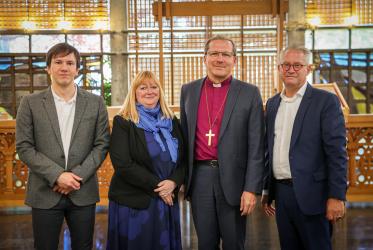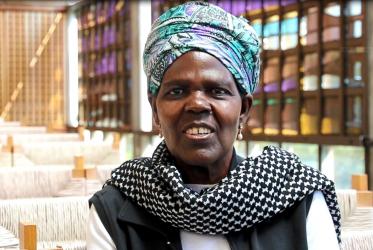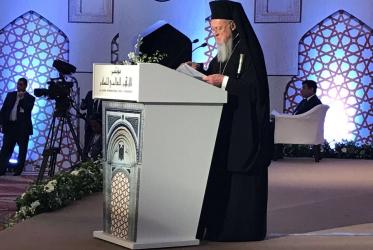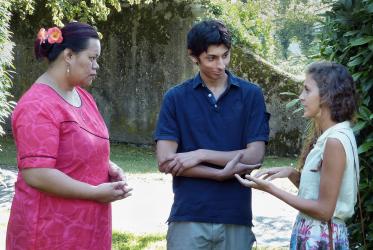Displaying 1 - 17 of 17
29 September 2023
Driven by God’s grace and a sense of duty
05 November 2020
WCC moderator “A call for equality in God’s house”
08 April 2019
#WCC70: Nathan Söderblom, ecumenical pioneer
29 August 2018
WCC/UN conference calls for coordinated action on refugee crisis
20 January 2016
WCC urges responsibility for and support to the refugees in Europe
04 September 2015
Christians are called to be peacemakers and to build just peace
02 December 2014
Youth build multi-faith community in Bossey
28 August 2013












